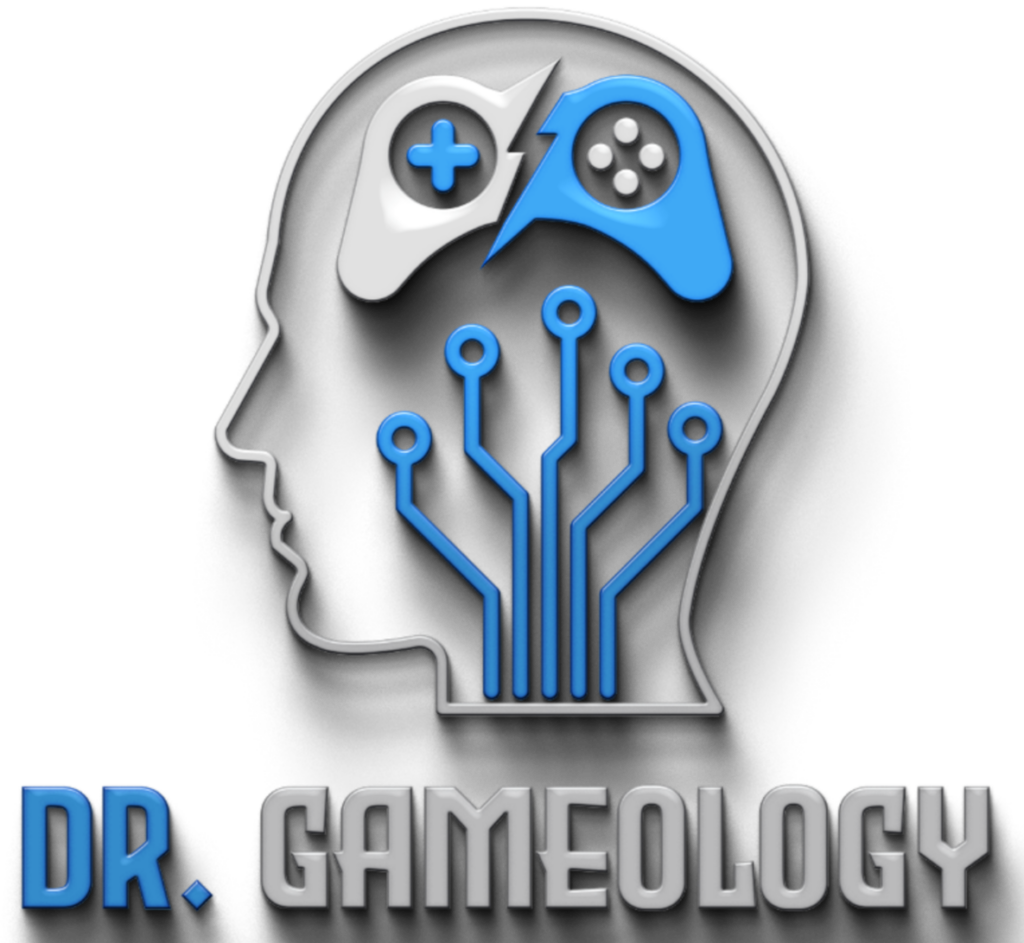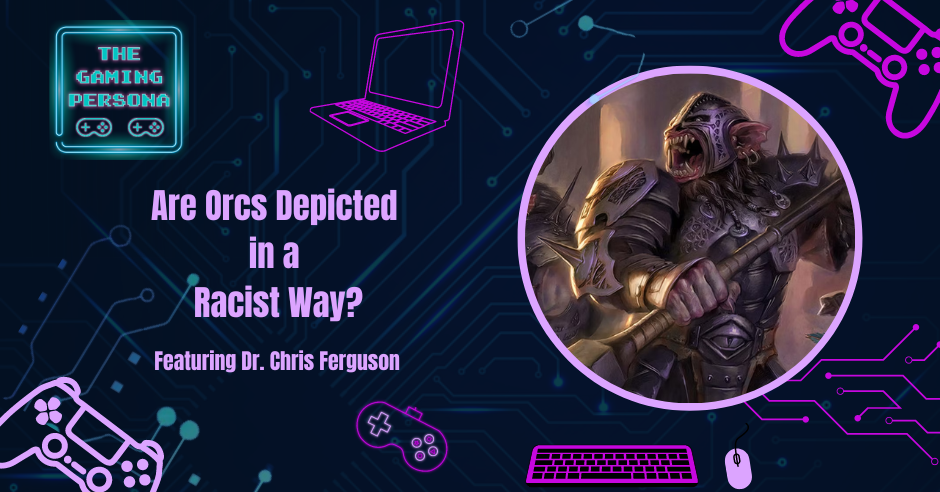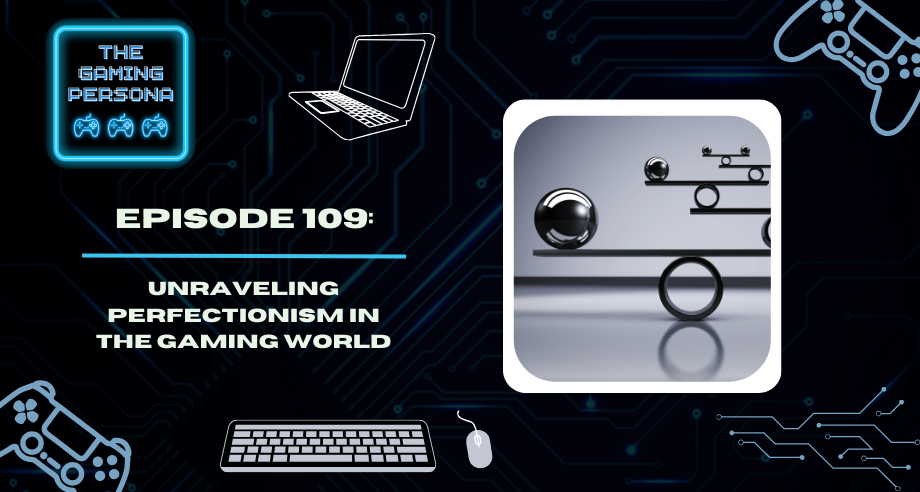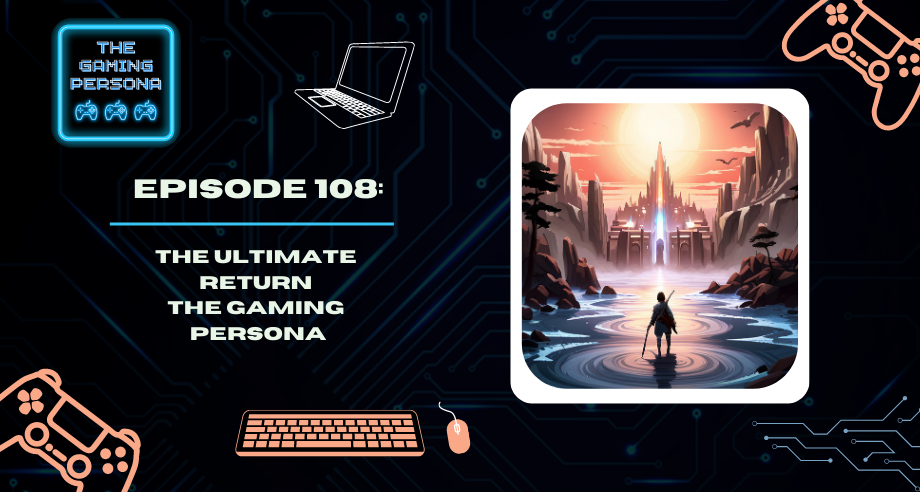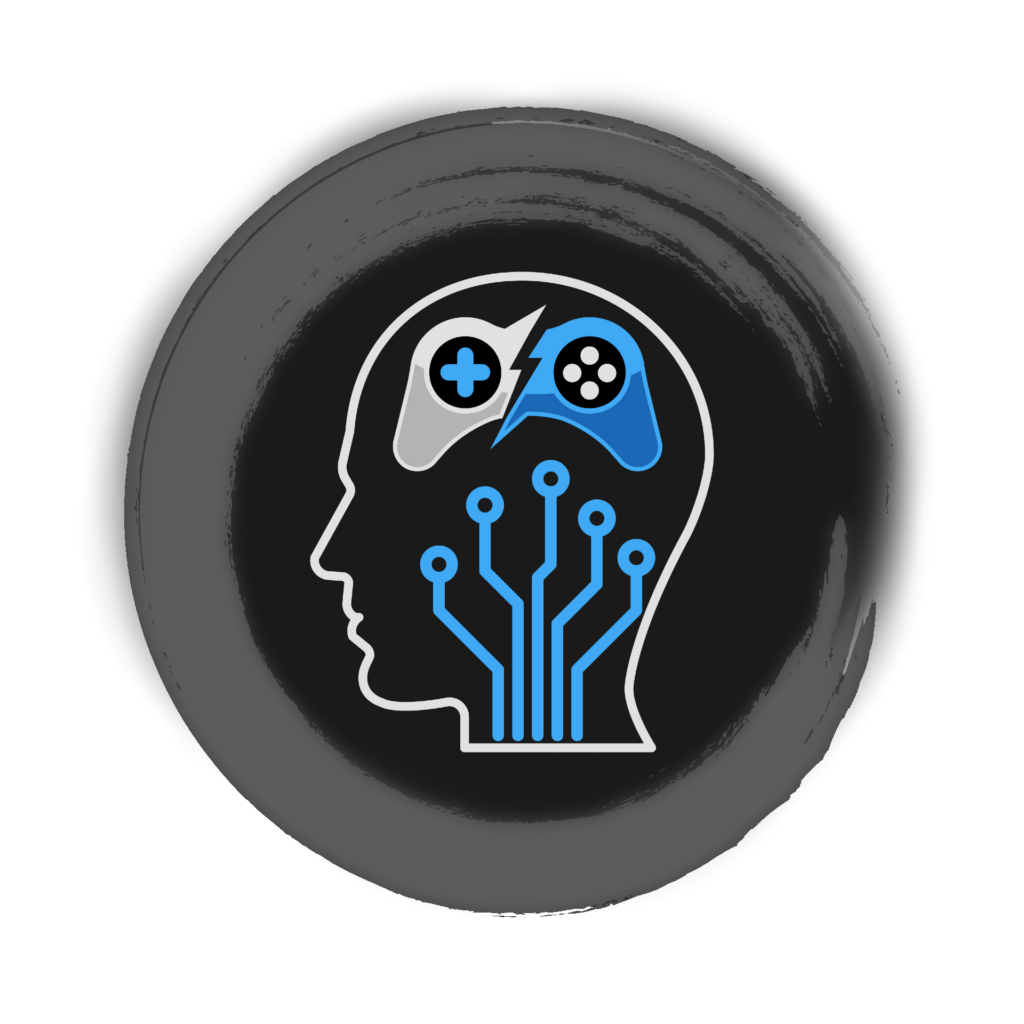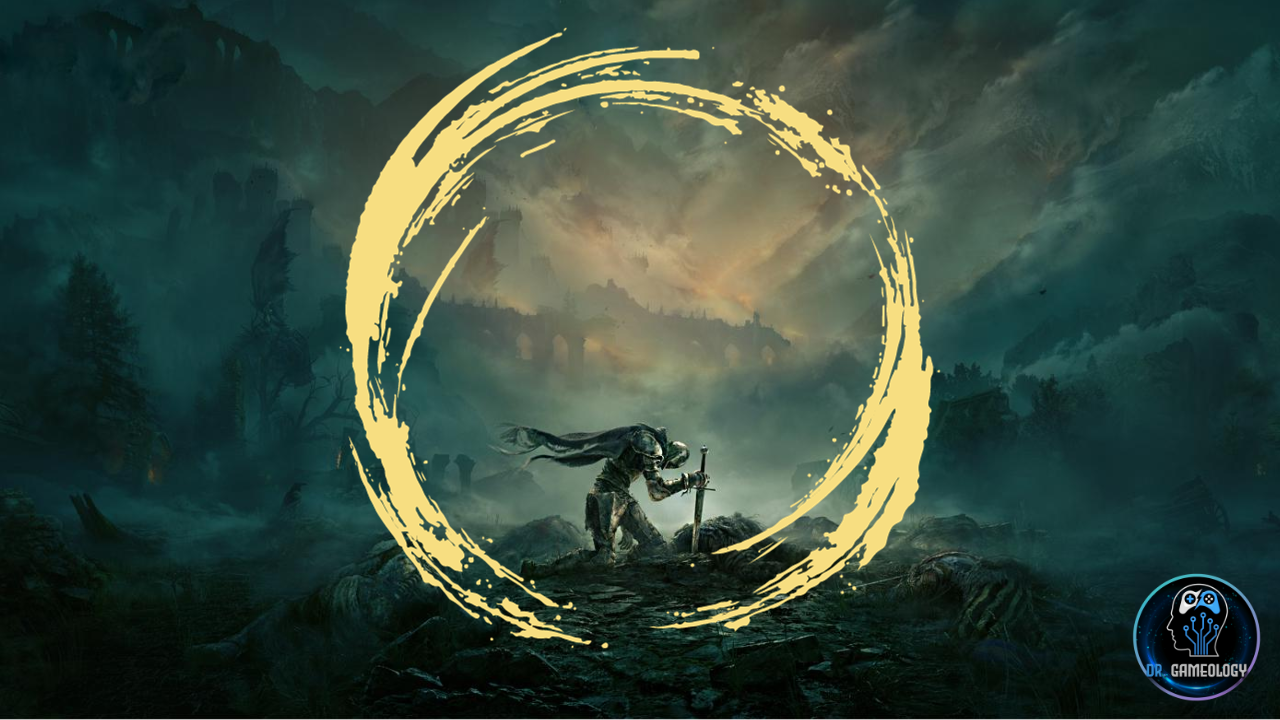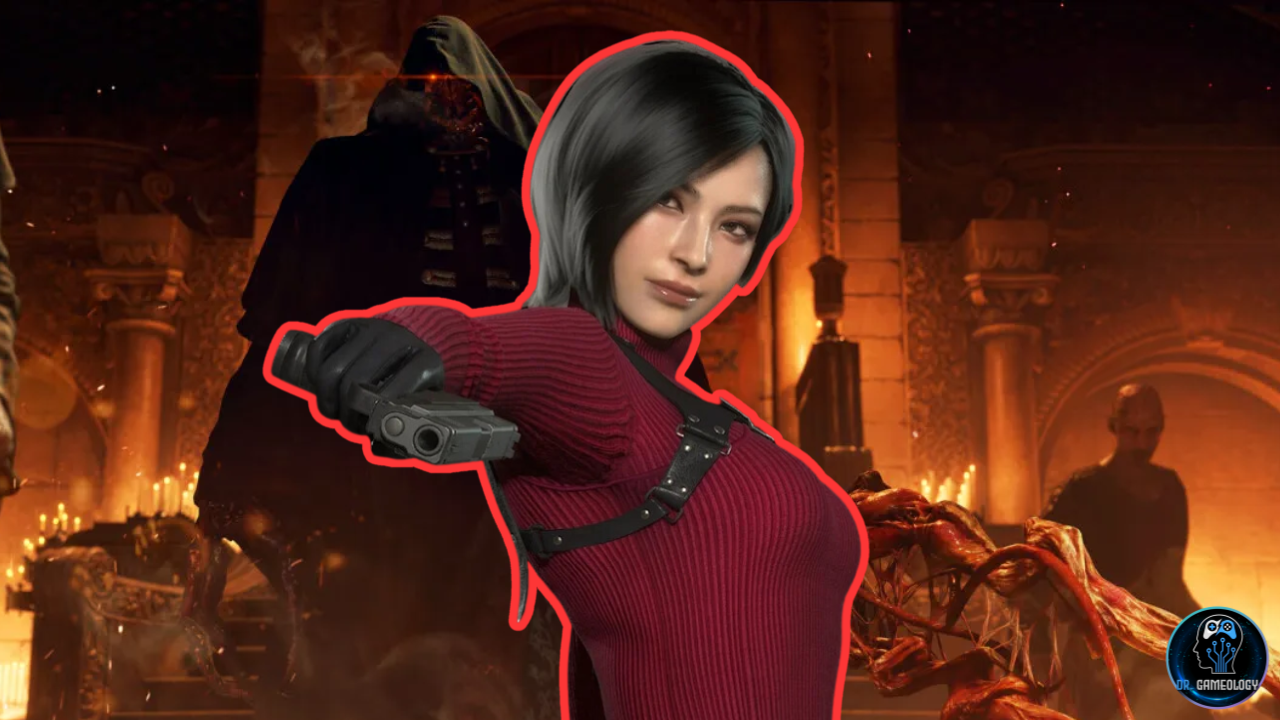S2: E36 | Are Orcs Depicted in a Racist Way? – Interview with Dr. Chris Ferguson
The Gaming Persona welcomes Dr. Chris Ferguson to the show! Have you ever asked yourself “Are orcs depicted in a racist way?” This week, we review one of his research studies which explored perceptions from players related to whether orcs are portrayed in a racist way in Dungeons and Dragons.
Listen to the Podcast Here:
Gaming Library:
Elden Ring, Final Fantasy XIV Online, Pokémon, Dead By Daylight, Assassin’s Creed, Star Wars: The Old Republic, Dungeons & Dragons, Pathfinder
Friends from the world of gaming, what are we talking about this week?
This week, we have a guest we have Dr. Chris Ferguson here with us and we are going to be talking about orcs and whether or not they’re depicted in a racist way in D&D.
Oh, man, that is going to be so much fun. I cannot wait.
The Ordinary World
So, let’s start with our Ordinary World where we share everyday life through our games. I will go ahead and introduce our esteemed guest.
Dr. Chris Ferguson is a professor of psychology at Stetson University in Central Florida. He has been doing research on media effects for two decades, and particularly related to video game violence, screen time, and thin ideal media and sex in media. He is also an avid geek who is currently losing too many hours to both D&D and Elden Ring. He lives in Orlando with his wife and son. And he also has done a few panels with Jenny and myself this year talking about avatar psychology and blending that into my recent findings with Final Fantasy XIV Online. So, Chris, thank you so much for taking the time to join us on the show this week.
Yeah, absolutely. Thank you for having me on today. It’s a pleasure.
Yeah, absolutely. So Chris, I was playing Elden Ring right before we hit record and I think my mind is still in a wait, I’m not dead yet. Okay, so Chris, what have you been up to in the world of gaming this week?
Yeah, well, I think those two things have been pretty exciting for me. We actually in our online D&D group, we started a new campaign and we’re actually playing around with the third party product for D&D 5E which is the spheres system / Power Spheres of might is pretty interesting because it got a lot more crunch to it than the standard you know, 5E system does so it’s pretty exciting to of course start a new game start a new campaign but also work with some new options for developing characters and then still plugging away at Elden Ring first playthrough and pretty close to the end at this point so for people that play Elden Ring I’ve just killed the fire giant I’m now like just finishing up some side quests before I pass beyond that with the can never remember names but the lady that’s kind of been helping me the whole time is I think going to burn down the Elder, the elder, the earth tree, excuse me. So just trying to finish off all these other little things I have left behind before I go do that. So, I think I am pretty close to the end. I am really excited about that.
Yes, you’re getting really close Chris and Elden Ring is definitely one of my favorite games ever. So, I will be excited to hear from you when you do. Become Elden word if you decide to be able to word Have you looked into the endings and started putting things together to make the world the way you mean for it to be a heretic.
I’ve still been mainly like I said, I’ve been trying to clear up Some of the old side quests like I just finished off Fia’s side quest last night and killed that stupid two headed dragon. And I’ve been kind of treating each one individually and the side quests. Some of them are opaque enough that I won’t live. I’ve gone online occasionally and felt like what the hell am I supposed to do now. So sometimes they do refer to you know, if you do this, you end up getting a certain ending, if you do a different thing, you get a different ending as a result of it. So, I’m actually excited to kind of, I can’t say I have any real plan. But I’m pretty excited to see how these outcomes all pieced together some sort of particular ending for the game.
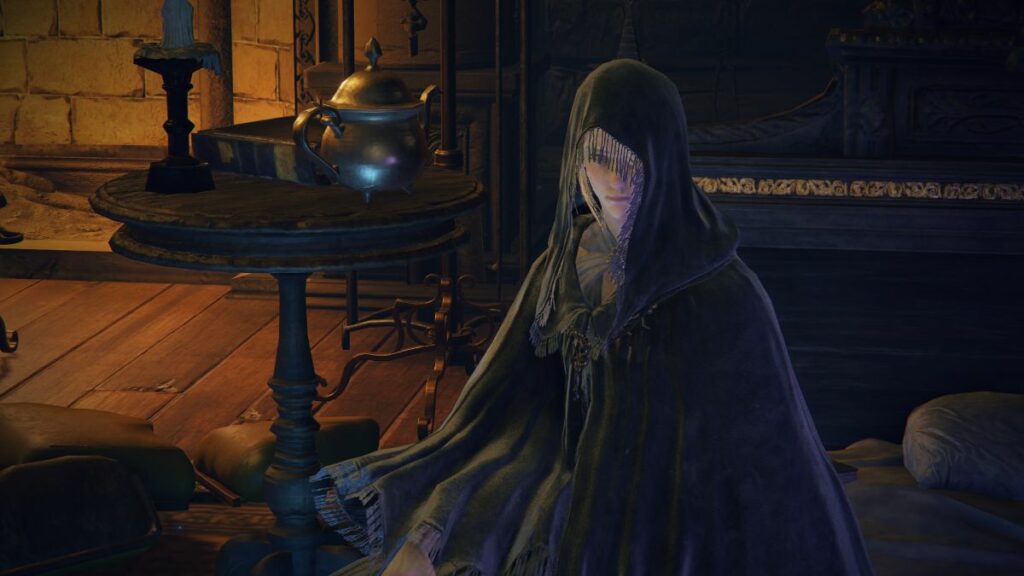
Yeah, for me, one of the things that I have never been able to do is get through the puppet wizards side quest, I always get him killed before I have a certain conversation. So, when you’re in the Three Fingers, you stumble upon what he’s doing anyway, whether you finish his quest or not, if you know where you’re looking, but I really would like to experience that quest. And I’m on my fifth time through the world. And I hope I get to experience that one because it’s one of those things where if you do things in a certain order, characters flip out and other characters die because of those flip outs. And then you go to have your conversation and your conversational partners dead. So, then you have regrets in therapy, like in real life when you have conversations you never got to have. So, Gene or Jenny, what have you been up to in your world of gaming?
I’ll go first again since I have nothing to report.
Oh, whew, Final Fantasy duty failed. I know which I lost my mp3 for that, Jenny. I meant to nail you with that two weeks ago, and I couldn’t find it. It wasn’t. It wasn’t worth my time. Oh, check the audio down.
But that is one of my only motivations to play Daniel.
I know. That’s why I wanted to drop it in the episode.
Yes. Well, it’s been a really crazy schedule of editing and flying back and forth to New York. So yeah, it’s just not no time.
Yeah. Have you considered just living in New York, Jenny?
No, I’ve got lots of stuff here.
Okay, Gene, what about you?
All right. Well, as I mentioned at the end of last week’s show, I am going through a move, so I am looking at purging my worst board games. And so, I did try out some of them and confirm that they were indeed terrible.
Oh, wow.
The Megaman board game I confirm is still garbage. Even though I love Megaman? Yeah, it hurts. The figures are beautiful, but the game itself sack. Let’s see. Another one was, it’s a game called. There’s a game called rune age, which is a weak spin off of a game called Rune Wars. So, it’s like, why? Basically, you play rune age if you don’t want to expand enough brain power to play Rune Wars. So, it’s like right down that game if you enjoy a better day.
Make sense? Interesting. Well, knowing you, Gene, you are always excited to expend those brain cells to play a game. So, I guess having the lesser one is probably frustrating for you, indeed. All right, well, some of this is going to sound repetitive. But unfortunately, I edited my ordinary world out of one of our most recent episodes, so I’m going to recover the things that fell to the wayside. The Psychology of Pokémon the power to catch them all has been released, it’s available to purchase and I’m holding a copy in my hands right now. And I’m the final 20 pages of reading in the book so not counting of course, the reference lists and, and all the other things. So, my chapter is titled “Learning to Be The Very Best: The Trainer’s Journey.” I just feel really honored to have been a part of the project. I’m actually going to PAX West next week. So, by the time people are listening to this episode, that we’ll already have happened. But I’m headed there to be part of the geek therapeutics panel to talk about the topic of the book. And I’m still just typing away researching away through my book. And, you know, I’m in the chapters that are about the journey. So that’s really exciting. And in video games, I’m leveling up dancer in the end Walker expansion for Final Fantasy 14. I played more Dead by Daylight. I downloaded the Assassin’s Creed Ezio trilogy, because I thought it would be nice to play a few of those for a little bit. And I read downloaded Star Wars: The Old Republic. Yeah, I haven’t subscribed or logged in. But it’s on my hard drive. It is because I was thinking about it. And I’m now doing a massive spreadsheet when I edit the audio and transcribe the podcast every week to put it on the website. And I’ve noticed that despite the lack of new content, in the game that I did my dissertation on, I’m still a content creator on Bioware as list, they still are in communication with me a bit. And we still mentioned that game every episode regardless of anything because of who I am. So, I’m sorry, everyone for being a bit Kylo Ren about it, but I have to accept that I’m Ben Solo, I just like playing Final Fantasy 14 a little bit more these days. And that was a weird fandom mishmash there, but you can deal with it. You’ve listened to 79 other episodes of the show by now. Also, I’m really enjoyed putting the Dead by Daylight episode on the website this week because finding stock photos and things to try and figure out what’s the Darth Vader picture I’m going to use to explain asymmetric multiplayer. That was such a gem of a realization and I’ve gotten a couple comments from some of our listeners that this was a really good point as well. So, it’s just really cool to get to interact with people who have been listening.
Yeah, and I think you would get a kick out of playing out or playing Imperial assault. Where you oh definitely tension Yeah, and some invader
Well, once a year, I’m probably going to be coming to PAX East for this, that or whatever. So definitely will get a chance to meet up and you can summon Boba Fett to destroy my dreams.
The Call to Adventure
All right, well, let’s, let’s answer The Call to Adventure. This is where we get into our topic for the week. So, friends, we have Dr. Ferguson on the show with us to talk specifically about a particular set of perceptions that players in Dungeons and Dragons might have about the depiction of orcs. And while we’re going to dive directly into that idea later in the episode, I want to just set the stage for what is D&D for all of us, and what do we think about trying to be our characters and interact with other characters that are being imagined and brought to life with whatever our own minds are capable of in a role-playing sense.
So okay, I haven’t played D&D in quite some time. It was a game that I used to adore and played a lot. But of course, time does not allow me to play, and I wouldn’t do that to a group of people I care about. But in terms of my character, and just playing someone in one of these worlds, I definitely. When I played D&D, I wasn’t as I guess I wasn’t as aware of this kind of stuff as I am now. I didn’t know you, Daniel. So, I really didn’t think much about my character and its relationship to me as a human being.
Funny how that correlation works. How fun games can be before meeting me and then after people meet me.
Knowing more about our gaming motivations doesn't change the amount of fun we have playing. It only helps us understand WHY we have the fun we have when we are playing. Share on XListen, it’s still fun. It’s just I get to think about something a little bit deeper. But yeah, so I chose to play a sorceress. And I was a particularly, I want to say I was like, somewhere on the good alignment. I played something like a character similar to what I was like who I am in real life. So, I will say that my avatar my character did have like I did put myself into it just because it was my first time playing role playing game. And I really wasn’t that comfortable with role playing. And I didn’t want to feel weird about making difficult choices or having to make choices based on something that I wouldn’t think myself. So. So for me, I did play a character that was like me, but just like to explode things a little with my fireballs.
All right. Gene, what about you?
So, I play for the competition. My preferred system is Pathfinder. And I’m a forever DM. So, I play all characters. Yeah. And so, the thing is about D&D and Pathfinder, and all these systems, well, not all of them, but a lot of these systems is, I feel like you have to embrace the absurdity of what you’re doing. For instance, the idea that you as a player character, right, you go from being a level one peasant, to becoming basically a demigod over the course of like, a year. It’s, it’s absurd. Like, you find a couple of random goons, and your power level goes up exponentially. And I find that like, there, there has to be a UPS absurd comedic element to that like, kind of like, you know, current MCU Marvel movies. It’s like, a character starts somewhere. And by the end of it, he is twice as powerful as he was before. You know, Thor can get a new weapon, and he’s, you know, whatever. And like, embracing that semi comedic nature of it. I feel like it’s very neat needed. You know, if you take it entirely too seriously, then you might fall into that trap of? Well, things like the topic we’re about to discuss later.
They definitely need to suspend your disbelief. That’s like the whole point of the game.
Yeah. All right. So, before I share my initial connection here, Chris, how where do you fall in your personal connection with playing D&D and similar games and inhabiting your characters?
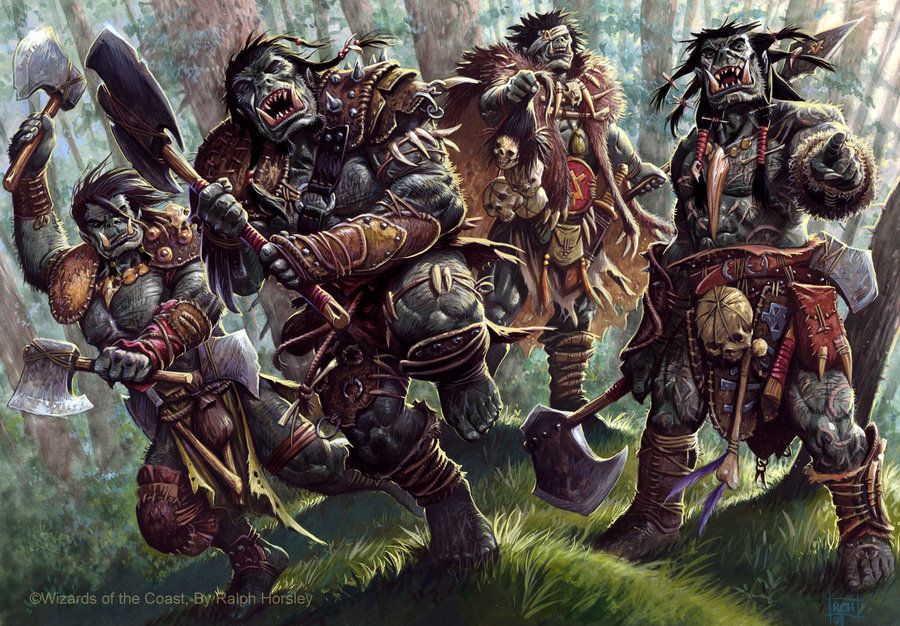
Yeah, that’s a good question. So I’ve been playing D&D for probably close to 40 years at this point, which gives you a sense of how old I am. So, right from when I’ve been playing since you were two years old. Exactly.
Right there in the cradle way, the mother and father dumped a bunch of D&D products and, you know, we just pleasing parents, yeah. I’ve been playing for a long time. And I think kind of like how I played it is has evolved over those decades. At this point, it’s hard to say that decades. But I both play and DM. So, I kind of go back and forth and eat. And I mostly when I play, I mostly play female characters, which is interesting, I’ve been doing that since I was probably a teenager, probably about 95% of the characters I play are female, throwing the occasional male for fun, but mostly female. And I think, you know, at this point, there really are two aspects of the game that I really like about it. And one is, I think, what a lot of players call like the crunch aspect, which really is a sense of, like, strategically designing another human being from the ground up, you know, and kind of developing the strengths and weaknesses and having more options for how to develop what they’re good at and what they’re maybe not so good at, which is why I kind of particularly like systems, you know, like I think Pathfinder is also kind of known for this, although I haven’t really played it as much but like the sphere system seems pretty good to for this. They have a lot more options, but I kind of liked that strategic element of, you know, just sort of, you know, it sounds as you know, I don’t know if say like, I’m designing another human from the ground up, if that sounds quite right, but that’s, you know, kind of has that feeling to it. But I also like the sense of the storytelling of it right? You know, it feels a lot like almost writing an epic fantasy novel, but doing it with a group of other people, you know, and having some randomization thrown in because of the dice and stuff. So yeah, there definitely is an element of it transporting, you know, myself away from sort of day-to-day routines. Whether that is stress reducing or not, I’m not sure but and that was one of the things I was looking at in in the study. But there definitely is a escapism, I think, element to it, that makes it attractive for a change from the routine.
Okay. So, for me, I have played Pathfinder, a few weeks with Gene and Jenny. And I’ve played D&D since the pandemic began. And I’ve been a part of two games in that way. One, I’m a human male wizard, and the other is a male. Ask them are sorcerer. So, in terms of combat, they play very similarly. But one of them I get to talk with a sense of superiority over my more human natured teammates, and the other I’m just cranky Gandalf, Dr. Kaufman. And so, they definitely have different mentalities and thought processes. And when I play video games with character creation, I usually have been creating female characters there. But the communication aspects of playing a video game are very different. So, when I type something in chat, or talk on Discord, I’m Dr. Gameology. I’m Daniel, I’m playing with my friends, I’m not trying to be female. And so thinking about the study that you were able to publish, Chris, and this came out last year. I think that a lot of the things I’m initially drawn to in my thought process of how I play games, and how I fit into that article is, I’m playing things that are very close to ways that my brain naturally operates. So, I don’t have to act. And psychoanalytically I’m not really projecting any of my assumptions into what other people who are not me are and what their lives are like. The Aasimar I play is from the realm of Chronos, and has these time-oriented abilities, which is not real, it’s very fantastical, it allows me to have a little bit more of a Time Lord element in my sorcery. And I love Doctor Who, so I get to play around with the idea of time being a central theme in my power set. But I’m not answering questions and communicating with NPCs as a female character, I’m not, you know, I’m not changing out of being a white male who is playing a D&D character. So, there’s still a strong realization of who I am as a person. Essentially, I’m not really role playing in a heavy way. I’m white role playing, and just hoping combat starts soon.
That’s exactly how I play.
Finding Our Allies
Yeah, so those are the things I’m thinking about. And it’s been really interesting to hear all three of you answer these questions, too. So, I think that that gives us a great foundation for our talk tonight. So, we can start our next segment Finding Our Allies because it’s too dangerous to go alone. So, Chris, one of the one of the things I like to do with everyone who comes on the show, it really leans into my resort, my research background, which is on personality type and motivation for playing games. So, you completed the chronic foundry motivation, profile questionnaire. And we have some information about you. So, what I’m seeing is first off, your gamer type is barred with secondary preference for ninja. That’s really actually interesting. Very cool set of things to mix together. It’s what I thought I was, but I really did mine today in 2022. Daniel is not a Bard / Ninja. So that’s interesting. So, bards like to play a part in a grand story which you actually share the already intense episode in your description of, of D&D, what makes that exciting for you. And then the Ninja is a duel of speed and skill. And we talked about ninjas in a recent episode. Between Jenny and I, we played Street Fighter five and then talked about it for our episode that night. And that’s one type of game that ninjas tend to enjoy the competitive elements, it’s fast paced, it’s a combo-based system and capitalizing on advantage and minimizing the pain of disadvantage. And yep, so certainly fighting games are not the only thing ninjas enjoy playing. But with the Bard and Ninja background there, what kinds of games pop into your mind as a way of saying, oh, yeah, absolutely. That’s why I like this.
Yeah, I mean, I think that makes sense. And kind of looking at, like, the motivational structure to have of, you know, the profile that I got, I mean, it sort of fits with kind of what I was saying about the two things I liked about D&D in a way that, you know, seems like the motivation is around like story, which kind of fits with the Bard and strategy was kind of fits with the ninja style. This is, you know, as I understand it, you know, kind of fit. So there seems to be this, you know, theme that runs through my playing style that I like immersive stories, I like the strategy, whether this the strategy of designing, you know, a character to play that, you know, so there’s the language in D&D of the min max and get out, which is kind of like maximizing certain things so that you’re very strong at them. With that being balanced by minimizing other things that that you are horrible at. And there, I think sometimes there’s sort of a pejorative in a sense of min maxing that it’s sort of like gaming the system and you’re, you know, perhaps focused on the wrong thing, if you will, that you’re not focused on the role playing, but you’re focused in on like, doing as much damage as you can, in most scenarios, but I actually find that sort of as a mind games sort of puzzle, it’s, it’s interesting to try to figure out how to design a character that, you know, really is efficient, that is competent, and things like combat, like breaking things and destroying things, as Jenny said, and I think that fits too with you know, so I do like these games like Elden Ring for video games that are very story, you know, focus and combat focus. But the other genre of games I really like are also the sort of, you know, like civilization, Europa, universalis games that, you know, are really about world building and managing resources, and kind of conquering the planet, you know, essentially, I have this, like, maybe a partner who wants to be a benign dictator, or something of that sort by, to overtake me, all of all of academia is for Exactly, yes. Small, a very small-scale version of being a benign dictator. Yeah, so yeah, so I think that that fits it was very interesting taking the test and looking at these motivational styles. And I would, I would say, I agree with how it is, you know, came up I’m not really a super competitive player. For the most part. I’m not really a completionist for the most part, even though in Elden Ring I’m kind of going through and trying to do is as much as possible but yeah, I would say like the two things that really kind of appealed to me are the story and having some sort of like really a story that I can be immersed into, and just sort of the design element you know, designing things or trying to run something and doing it hopefully competently sometimes not but hopefully competently in these games.
So, I think you’ll really enjoy Pathfinder if you really like the crunch, it is the king of crunch
I’ve heard a lot of good things about it just happens to be the groups that I played with thus far have mostly been D&D heavy you know, groups and like I said, we’re sort of stretching out and one of one of those groups right now with the spirit system, which I think you know, my description might be like Pathfinder, light, you know, you know, sort of thing but I really do want to play a pathfinder game because it because what I’ve heard about it makes me think like, yeah, yeah, that’s what I want. I want a lot of choices.
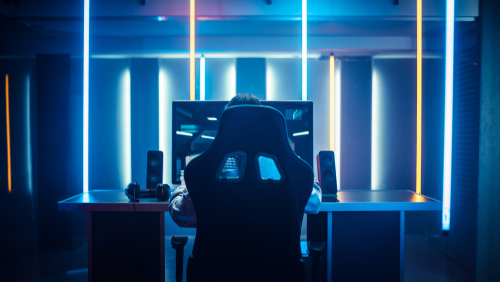
I’ll spend all day just cranking out characters if I’m boring. Yeah, so many options.
And I guess it’s not for everybody. That’s why I think D&D has become more simple or straightforward. Maybe it’s a better way of saying they actually try to cut down on the number of choices. so that it’s easier for players to learn the system and new players to get involved and that sort of stuff. And that’s, you know, that’s understandable, but, but I’d like to, you know, have a bit more, you know, I want, you know, each character, I have to be pretty unique. You know, and so having a system that allows for a lot more choice is, is pretty cool for me, but I even love these games, I don’t know if any of you have ever played like the Europa Universalis, or Hearts of Iron games or whatever, they are absurdly detailed, you know, like, the, the learning curve for these games is just stupid. But you know, the reward is, you know, high risk, high reward, you know, they’re a lot of fun to play, but you know, like, in hearts of our, and you can basically run Germany, you know, through World War Two or whatever, see, if you can do better than, you know, the Nazis did, I guess, sounds like a really twisted motivation, but it is what it is. But, you know, you really are managing everything in this country. So, you really have to take the time to learn how to play and you know, if you don’t, then your armies won’t have gasoline, you know, and that’s kind of bad. So, but I liked that I liked that sort of high level of, you know, complexity in my games.
Jenny, do you remember our conversation with Nick Yee last summer, and the kinds of games that he was explaining to us? So, Chris, for a note here, this Motivation for Playing Online Games Questionnaire that all these results came from, that is Nick Yee’s instrument. The way you just described what draws you into the games and the specific games, it’s, it’s like, copy, paste, almost, but then like infusing your specific personality, and then also timewise, and thinking about, you know, the people that have been releasing the information that, you know, motivated me to do what I’ve started to do. And what games were out when that was happening. So, the timeline of games, the timeline of academia, and the timeline of the instruments for how we academically discussed video games, I’m just your hexagon of percentages, is just lighting up, like if my eyes see the matrix inside of it, as you’re describing yourself, like, the different parts of that hexagon are just glowing. Like, not only is your read on yourself accurate, but the numbers support everything you just said. Yeah. So, everyone, if you are fascinated or confused by what I just said, you can go to Quantic foundry and do your own motivation profile. And I promise you, we’re going to come back to these hexagons, and these gamer types, and always be infusing those into our episodes. So, wow, just really cool.
Yeah, I was doing the same thing. Normally, when we have guests, I do that I like to listen to what they’re saying and what lights them up. And you can just see, like, the high percentages in your hexagon, they match, they align perfectly with everything you just said.
Right? If we do a ranking system on what’s your number one motivation on the primary hexagon, yours is creativity, Chris? Yeah. Mine is not creativity. Mine is mine is either mastery or achievement depending on whether the day I took the questionnaire ends with y. Yeah. And they all end in y. So, it’s basically it’s just really cool to hear you describe what it is that makes a game a word of the use of time or captivating for your imagination. Because we might do similar things, vocationally, and we might play similar games in our time for entertainment. But the thing that happens for us is a completely different thing. And that’s what I love about this conversation.
Yeah, so it’s me with love playing even some of the D&D like games and video games, and, you know, seeing how some of my friends would play them. And then I can’t remember some of the games from the 90s that were very popular camera, the names of them, but I remember I had a friend, you know, whenever I would play these games, I would treat them like D&D. Like I’d really spend time thinking of the name of my character and usually would be female, so kind of like developing her and then I see my friend play and he would name his character like Horsey McHorse-Face, or something like that. It really his motivations for playing were obviously very different. My motivations for playing that was really interesting and kind of eye opening to see that
I feel like Horsey McHorse Face did a really good job tanking for one of my Duty Finder missions. Small internet. All right. So, before we move into the research article directly, Chris, what made you interested in researching this specific element inside Dungeons and Dragons in the people who play them?
Yeah, that’s a great, that’s a great question. And I’m trying to think of the not too long answer for it. But I think, you know, I’ve been doing media research for probably 20 years at this point, and most of that was spent on violence and video games. And, you know, I think the things that have drawn me research wise, in general, in and I do a few other areas, like, you know, violent crime and policing and race unit research and this kind of stuff. But I think the things that have drawn me to research are usually what I think we would probably now call culture war blow up so that we didn’t use that term really 20 years ago, for the most part, or what we might call moral panics or something of that sort. So, I really fascinated when sort of the general public or politicians or other groups get really convinced about a thing, and that thing is bad. And it’s causing harm, typically to the youth or perhaps some other group. And don’t necessarily have any evidence for that or against that necessarily but are sort of progressing as if this thing is kind of a crisis point. And so that’s what kind of drew me to video game violent research to 20 years ago, what kind of the narratives around you know, violent video games and mass homicides? Same thing with media and, you know, anorexia nervosa, you know, and kind of go down the list of all these naughty forms of media that are supposedly causing harm to minors one way or another, and it kind of what happened is, you know, like, I’ve been playing Dungeons and Dragons, like I said, for like, 40 years. I remember in the 80s, where there was kind of this like Satan panic about Dungeons and Dragons.
When people are afraid of the presence of Satan being in a fictional story, it is as if they are worried that players will find a direct connection between their Homebrew Satan and an actual spiritual entity. Share on XYeah, where it was a huge plotline in Stranger Things this year. If anyone forgot, we get to remember Stranger Things now.
Exactly. And if people were concerned the game called suicide and Satanism and violence and even psychosis, you know, there was the movie mazes and monsters with Tom Hanks that made it looked like the game could make you have schizophrenia. You know, and it all turned out to be rubbish. But at the time in between the first and second editions, I don’t think it was Wizards of the Coast. Yeah, I think it was still TSR. But the company removed all the demons and devils from the game
Oh, that’s so sad.
For about 10 years, you know, they were gone. They kind of quasi brought them back. I think they called demon…
“Homebrew Satan is the real Satan!”
… you know, but it was in response to this, you know, this was mostly from like the “Christian-Right”, you know, that we’re concerned about these things, although we get popularized, you know, so it wasn’t just a Christian, right. But, you know, certainly like 60 minutes had an infant now infamous documentary on the, on the, on the panic, you know, that was largely supportive of the panic. You know, so this is kind of this history around DND, being sort of the epicenter of some of these cultures, war things. And, you know, and I just had, it was really about two or three years ago that I saw this eruption, and maybe it had been simmering to some extent before that, I wasn’t aware of it. But, you know, probably around spring of 2020, there was a sudden kind of social media eruption around this issue of, you know, basically the idea that the evil monster races in D&D, in some way or another are reflective of real human population groups. And that as a consequence, either, you know, playing in the system may sort of promote racism or ethnocentrism in in real life, and sometimes people use kind of squishy language, I think, because they know that they’re making a fairly dramatic claim, you know, but that’s kind of the essence of it is, you know, that playing D&D would be related to ethnocentrism, which is basically racism, you know, in real life. Or that you know, there is a substantial consensus among, you know, players of color or people of color, whether they were players or not, that they were offended by these depictions of like orcs as being brutes you know, and evil monsters and therefore, There was some need to sort of change the system in order to, you know, sort of placate the perceived harms that this community was experiencing. So even if, you know, maybe the game doesn’t promote racism in real life, if enough people perceive the game as offensive to themselves, or to their particular ethnic group, or whatever else, that there still may be a compelling reason to make some changes to the game. And you know, and I think that’s kind of what we’ve seen in the last few years. That, you know, the Wizards of the Coast have, at least partly moved to sort of deemphasize, you know, the evilness of orcs and Drow, and maybe some other races as well, and make them more nuanced, and which isn’t necessarily a bad thing, if it’s done for the right reasons. And then also, like Pathfinder, the Pathfinder system, piezo, removed, do I think slavery is a plot element from any part of the official, you know, game, largely because
Intelligent beings would never come up with a system like that and actually implement it.
Yeah. And it’s important to know that in Pathfinder, it wasn’t, you know, I think it was halflings tended to be, you know, the, but not exclusively, you know, so it wasn’t synonymous with real life racism, where, for instance, like black Americans, you know, experienced racism, you know, it was a much what it was, you know, a much wider group of individuals, humans, halflings, and other groups that, you know, a ball, you know, skin tones were you exposed to racism and stuff, and it was it was evil in the game, right? This was something you’re supposed to fight against, and try to stop, you know, from happening. But there was a letter that was written again, published on the internet written by one person sort of complaining that this was traumatic for people of color. To see this in the game, and I, you know, I don’t know how eventually boiled out, but it seemed like piezo was moving in the direction at least of removing any kind of official game product, as you know, having that as a plotline, I don’t know that they actually, you know, waved a magic wand, and made slavery go away completely. But I think in terms of like discussing it as like a plot point for adventures and things like that, that was going to cease, basically. So, so that’s kind of my question is sort of like, same thing as, like, 40 years ago. Is it really true that playing D&D increases your suicide risk or risk of developing psychosis or aggressive behavior or whatever else? You know, is it? Are these concerns valid, you know, or is there evidence to support them? In the sense of do we really see that playing D&D is related to real life racism, or ethnocentrism? And is there kind of a groundswell consensus among nonwhite people, people of color, that portraying certain monsters like orcs in the D&D system, or the Lord’s or the ring movies, as kind of inherently evil? Is that somehow something that you know, the typical, you know, Latino or black player or non-player? Do they care? You know, is it just like a few loud people on the internet? Or is there really kind of like a wide consensus behind this thing that we really should be listening to? And I think that kind of makes a difference. And into my mind, I think that the answer is yes, for either of those, then then there’s something that’s sort of important, and we should talk about, but if the answer is no, for both of those, then that creates kind of a different picture entirely. And that may be useful for wizards or piezo as they make decisions down the line about what changes they should or should not make, to their products and why.
The Ascent
Interesting, that’s our foundation, Gene, and Jenny. That’s, that’s what we’re getting into today. So, let’s fly to The Ascent where we elevate the topic. All right, so Chris, your article is titled our orcs racist Dungeons and Dragons, ethnocentrism, anxiety, and the depiction of evil monsters. It was published last year in current psychology. So, thanks for explaining, you know, the context and the history while you were explaining that it occurred to me that I’ve never watched a major news outlet talk about anything like this and have the immediate thought reaction of wow, they probably played a really well thought out D&D campaign to like, support that conclusion. So, you know, I really question their research their eye, as a as a player, that is new to the game and is playing in the 20th First Century as their first point of entry. I have never thought about other character races as a direct parallel to something that is real. So, your article or allegations from a Fox News or CNN type of place, that this is a real problem that requires uproar actually creates the question, initially for me of is this a real problem? Or is it an upper meaning? I would not have even thought about this for a couple more decades. If someone didn’t tell me, you’re supposed to be thinking about this. Yeah. So, that’s kind of my comment. I want to before we get into the questionnaires, and the data and the findings, I want to ask gene Jenny, what what’s your initial thought connection to this yourself as players and all the conversations we’ve had in the history of the show so far? Like, where are you at right now?
So, I really what you said, do they care? If the answer is yes. And let’s look at it. I feel like that’s a really important place to start. And that, it seems to me like your study is answering this question. And for me, personally, this is like you didn’t know this is not something I’ve ever thought of. I typically, when I’m playing D&D, or just consuming any sort of media, or reading a book, watching a movie, my mind doesn’t just go there. When we’re talking about works, so. Yeah, this is it’s not something I’ve ever looked into prior to this week, when I was reading your, your study findings and researching a bit. That’s kind of where I’m at.
Gene, what about you?
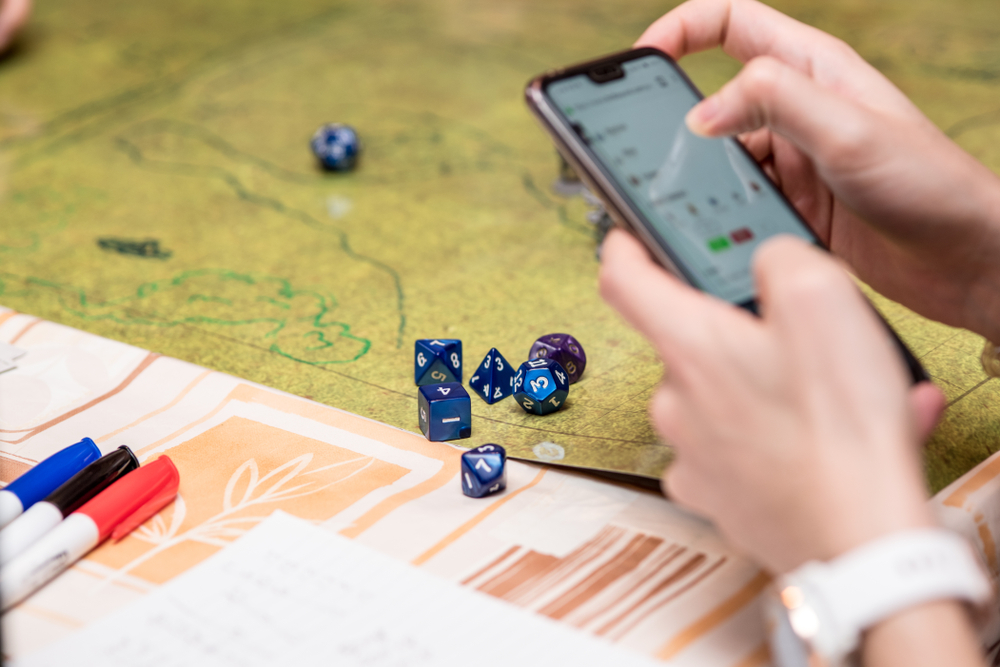
So as a person that DM’s a lot? I, yes. So, there’s the I you can understand the viewpoint of, well, maybe some people could perceive this character as races. But as a DM, you’re reading the setting books, you’re reading the background of this, of, you know, the continent, all the all the races of the continent, and just having a basic understanding of what this world is that you’re doing, like, really dispels the notion of like, “Hey, these are clearly supposed to be everyday earth people.” Like, you know, Pathfinder, you’re not even on Earth. You’re on some other planet, you know, far, far away, named valerian. So, it’s like, if you’re drawing the conclusions, it’s, it’s either the fault of the DM, or the players are just looking to draw their own parallels.
Wow, you know, I had a thought I wasn’t sure if I was going to say it out loud. But Gene, you just convinced me I have to. If we’re doing a Rorschach test with someone, and they look at the picture, for 10 seconds, the image of the blot on the card, and then they explain that that is a racist person attacking someone that they hate. Which I’ve never had happen, but it’s a projective test. And so, the result of them saying that indicates a belief they have or a fear they have or a concern they have or something they’ve witnessed, and there’s probably something really important to understanding who they are and how they got into that assessment with me. Basically, because none of those inkblots are actually that picture, the person seeing that reflects something going on within them. And I wonder if the people that spend 10 minutes reading little blog articles about D&D and are convinced that Drow are a racist depiction of some probably not white race, you know, some person of color and saying that’s wrong. I wonder if that finger pointing is more of a psychoanalytic concern for society?
Yeah, for me, Drow is a weird one. When you look at the Drow, there are underground dwelling demon worshipping race, like, who is associating themselves with that race to be offended?
Oh, that’s an amazing question. I hope that this episode makes a lot of people upset at them. So all right, well, in order for you to be upset about that, you have to also believe that, you know, demons are real and that they are, you know, they’re trying to navigate themselves to take over the actual world, and that people thinking about them in a fun fictional way, is a terrifying threat to the future continuation of humanity as its presently constituted. And so basically, you think that the things that happen in a D&D game are scientifically possible. So, there now more people are upset. Let’s just keep, let’s just keep going. So, there are three hypotheses for this study. And all of them, man, all of these could be a full one-hour conversation, I am convinced of it. So, Gene and Jenny, I’m going to give both of you the responsibility to read one, two and three.
Okay, so first hypothesis is greater hours spent playing D&D will be associated with greater ethnocentrism.
Alright, number two is people of color are more likely to see the portrayal of orcs as evil and being racist. Or sorry, I read that wrong. Their portrayal of orcs as evil as being racist.
Playing D&D will be associated with reduced anxiety. That’s the third and final hypothesis.
All right, excellent. So, let’s see, I think that in the interest of time, we should probably jump into what exactly was the was the data part of people participating in this? Like, like, what were you measuring? In order to help you, Chris, get somewhere on those three hypothetical assumptions?
Yeah, that’s a great question. So, this was, you know, basically a pretty simple online survey, you know, type design. So, it’s a correlational study. You know, that a survey base and the things that the study was looking at were, the outcomes were ethnocentric, ethnocentrism, which is basically what it sounds like, on the box, you know, essentially a preference for one’s own ethnic or racial group and negative assumptions about other you know, you know, somebody said, like, I’d prefer to be around people who ethnically are similar to myself, you know, people who are from different races are less trustworthy, you know, that those kinds of questions basically. Okay, there, again, the anxiety is a survey, it’s kind of what it says on the box, you know, where people more or less stressed. And what I done in the study, too, was present people with a depiction of orcs that was straight from the DND game, it was right from the Wizards of the Coast product in it, it kind of describes them and their culture and their tendency towards aggression and evil, and this kind of thing. And I asked participants twice about it. And in one set of questions, the questions were a bit more subtle, you know, so they were kind of, you know, they were kind of like going back and forth. So, some of the questions were really not relevant to the study, you know, so these, the description makes me feel good. You know, I think it’s a great description, I really didn’t care about that stuff. I was really more interested in, you know, this description is offensive, it feels unfair, you know, that kind of thing. You know, and the reason for this sort of I said, you might ask, Well, why did you have questions in there you didn’t care about you know, and that’s kind of the tried to throw the participants off from what the hypothesis of the study is, you know, we don’t want our participants to guess what we’re trying to really, you know, get out. But so, we had, you know, one set of questions that we’re looking at how, basically how offended you know, people felt when they read this depiction, and then I had a bunch of having to do some other things. There were a couple of distracted question in the questionnaires in there that had nothing to do with the study. Once again, again, just trying to throw people off. The Ascent a little bit about what the study’s was trying to get out. And then I had them reread that, at the very end, I hadn’t reread that depiction of Oryx from the DND product. And now I basically asked them, you know, I find this depiction to be racist, you know, so much more blunt, you know, set of questions, you know, that were put a little bit more directly to participants and, and then also control for a few other things, you know, of course, asked about, you know, their own ethnicity, their own age, you know, gender, how often they play Dungeons and Dragons themselves. We also measure social desirability, because of course, when you ask people about things like race or racism, sometimes people give you answers that they think you want to hear, as opposed to how they actually think. So, we were also trying to control you know, for that, so we really wanted to see whether, you know, playing D&D was related to some of these outcomes. Or, you know, once again, was it the case that most people agreed that the depiction was racist? Or was it offensive? Or did it matter if there were white or non-white, for instance? So, you might make the argument that, well, maybe whites wouldn’t think that it’s terribly offensive, because they don’t really experience racism in their real lives to the extreme same extent as people of color. You know, for instance, and so that was that was kind of the design. It’s a fairly basic, simple design, but I think, you know, tries to get at least some of these questions in a way that is helpful.
What did you find related to that?
Yeah. Well, I mean, there’s it’s kind of good news and bad news, you know, so we also say we really was, you know, the royal we hear
Bad news first, then, Chris.
Is that a habit we get to do that can be a little bit pretentious. But yeah, so the downside is I did also task is kind of easy to ask about, like stress and anxiety. So I was, you know, kind of hope. Yeah, hope it would, what did you hope to see, but people sometimes say, well, I hope to see that the Dungeons and Dragons was related to reduce stress and anxiety, and sadly, did not find that. I think it’s maybe similar. You know, I listened to your episode from a couple of weeks ago about video games and the VOR study. So, it’s kind of the same. Yeah, it didn’t increase anxiety, but it didn’t decrease it either. But, so that was maybe, you know, a little bit disappointing. But what I found otherwise was that playing Dungeons and Dragons, you know, number of hours spent playing dungeon dragons was not related to ethnocentrism, you know, so there wasn’t any evidence to support the concern that playing D&D would make you more basically racist, you know, in your everyday attitudes towards other groups. And the majority of people neither found the depiction of orcs to be offensive, nor did they find it to be racist. And it didn’t matter whether they were white or people of color. So, there wasn’t any distinction. Nor did it matter whether they were D&D players or not, you know, how many hours they played, you know, Dungeons and Dragons. So, the one thing was sort of interesting that came out, though, is that, you know, when we, again were away when I asked people about their perceptions of how offensive the depiction of orcs was about 10% of people found the standard D&D depiction of work to be offensive. When I asked about racism, that went up a little bit so about at that point, 34% of people agreed that the depiction of works was racist. So still a minority, you know, still, you know, the vast majority of people did not find the depiction to be racist, but a larger group reported finding the depiction to be racist that reported finding it to be offensive, which was I thought, pretty fascinating.
I’m trying to make sense of my own experience being a player in a D&D game, and also the geek therapeutics trainings I’ve done related to D&D and practicing application of different things by character sheets and therapy sessions with people. And I’m just always blown away by the potential for good. Good psychological construction. Inside games like this. And the people I talk with, whether it’s clients, students, friends, peers and colleagues, the majority the vast majority, nearly everyone that comes into my mind with faces and names that enjoys playing D&D is playing it out. As a way to escape some of the terrible things that freely run rampant in society, then it’s like the world in D&D is what it’s supposed to be not this, you know, stupid place with politics and so much racism and so much exercising of privilege to keep people down and locking them into, you know, a certain place a certain lack of resources, a certain extinguishing of hope that when you play these games, it’s all about hope. It’s incredibly fair and frustrating. But you can achieve the greatest thing possible in your existence, if the dice as you can, which is a much better shot than a lot of us have in life. And I can’t fully accept the idea that this game would create or expand a problem like this for people. Yeah. I don’t know. That’s, that’s my take on h one, two and three, anxiety, ethnocentrism. I’m a white male. And so, everything I said, I think, should be run through that filter. And I am excited actually, to even point that out and say, I don’t know what this conversation sounds like as anything. But that because that’s my point of view. And every attempted empathy ultimately, is just sympathy, and trying my best. But that’s what I’m feeling right now. I’m done. No one else can talk.
I would like to insert a question. So, in the settings of D&D, Pathfinder, whatever, there was typically, in setting racism, right, you know, people don’t like orcs because either through some problem in the past, they came and tried to conquer their town or whatever. So do people extrapolate the endgame treatment, to the orcs to just plain normal racism?
Yeah, I mean, that’s, that’s a great question. You know, you know, from the data we have at this point, I mean, what I was hoping to look at with this particular survey was, you know, not necessarily the end game at attribution of what players were doing with this stuff. But rather, does it leap from the game into real life, you know, in a way that would concern us. So, the easy answer, you know, from the data is to say that, no, that doesn’t seem to happen, that whatever people are grappling with, with the end game, racial tension, does not seem to people don’t attribute that in any meaningful, meaningful way to sort of real-life racial conflict among actual human population groups. That’s the good news, you know, in terms of, you know, racism in the game itself, and how people grapple with that. I mean, of course, in fairness, it’s not even just the orcs, the evil, you know, monsters, but also, even among the playable races, like elves and dwarves, there tends to be a certain amount of, you know, racial tension between those groups that might be played off as a bit more lighthearted, you know, and that sort of stuff, where they’re not actually attacking each other. And there’s no, not necessarily any oppression between the groups, but they’re just kind of suspicious of each other. And, yeah, I think there’s an argument that I mean, two things, I mean, I think people generally are able to sort of make a distinction between what’s happening with that issue in the game, as opposed to how they should deal with that in real life. So just because you make fun of a dwarf, you know, for drinking too much in the game, doesn’t mean that you should make fun of an Irish person for drinking too much, because that’s a stereotype, you know, that people have, you know, historically had, you know, towards certain, certain groups I just picked on my own ethnicity, you know, just the keep it, you know, for getting too out of control. You know, but I also think this is argument that it’s kind of a safe area to sort of grapple with some of these topics, that you do kind of matter. We’re all aware that there’s racism in the real life, you know, we’re that there still racial tension in the United States and other countries. And that This is sort of this is important, you know, so I think it’s in some ways a way to sort of play around in our heads with some of those issues, but in a safe way, where, you know, nobody gets hurt, and it’s not too stressful, it’s not too tense. You know, we could kind of make sense of that. And I think that was really in some ways, like the missed opportunity for piezo, and removing slavery from the game, you know, that slavery is an important topic for us to grapple with. And, you know, in the game, it was depicted as an evil that should be destroyed, you know, and if you decide that your players can’t handle that, you know, that for some reason, it’s offensive to even in an abstract way, deal with the issue of slavery, you know, that feels like a missed opportunity to allow people to kind of grapple with and understand how slavery is painful, how is evil, and, you know, that is bad. And we’re able to sort of grappled with it in a way that is fairly safe from judgment, and, you know, fear of saying the wrong thing, and whatever else, and, you know, sort of hints sort of this idea that, you know, I mean, for decades, we’ve said that we need to talk about these issues, and now the movement seems to be to extract them entirely from, you know, a lot of media and a lot of spaces, as if, you know, we are unable to speak about these issues, again, even in fairly abstract ways. And I think that’s, you know, I understand that comes from a place of good intention. But I worry that that is going to backfire, basically, and actually make it more difficult for people to, you know, we if we can’t deal with slavery in a role-playing game, how are we supposed to deal with it? With teaching it to our, to our children in a way that is accurate and fair, you know, or…
The moral panic around ideas in the gaming space is often perpetuated by a fear that people will begin wrestling with the ideas of good versus evil, and begin seeing the source of these concepts enforced in actual life. Share on XChris, I think that’s the opposite of what we’re seeing happen, though, because we’re trying not to teach our children to understand that. And so, the goal, I think, the agenda of whatever the dominant force in decision making, you know, the people that decided for public schools, that the Lord of the Rings is on the banned book lists. You know, the intention there is, you know, I don’t know exactly what it is about Lord of the Rings, it might be elves and dwarves’ stuff might be orcs stuff, it might be the ultimate evil in the ring of power, you know, Sauron is too much of a parallel between like a fallen angel rebelling against God. I don’t know what exactly it is about things like that. But D&D kind of has a parallel here, which is, let’s remove a concept is just a background minor detail, that is part of the world building. This is what the peoples in our fictional space, deal with and interact with on a day-to-day basis, and You as players are entering their world, and we can’t trust you to interact with this idea, meaning, you’re going to have to homebrew it if you need to have it. Meaning that we’ve completely washed our hands of what you do with that idea. And our official response is, well, we didn’t intend for that to be in the game. You know, but, you know, there’s so many political or politicized issues in our country where the legislation around it allows for the thing to happen, and also prevents a responsible discourse about the implications that it exists. Yeah. And wow, like, we’re talking about D&D. Let’s everyone just remember that like this whole conversation, everything Chris said everything, Gene, and Jenny, that you have said, everything I just said, we’re talking about a tabletop role playing game.
Yeah, I like to just point out like, in that past piezo, you know, for Pathfinder, first edition, there are entire books written about classes, and, you know, organizations and stuff where you basically can create characters that run a fictionalized version of the Underground Railroad to free halflings. So, it’s like, yeah, it’s, there was a time this was fully embraced as a, hey, we can learn here. Yeah, now, it’s Yeah, certainly declining.
I think it’s interesting. You know, I think both Jenny and Gene kind of, you know, asked about this. And so like, where is this coming from? Yeah. And I think for me, at least, you know, it’s important to sort of acknowledge that this is very much a Twitter thing. You know that this is not a concern that is organically coming from low income, ethnic minority communities, who, for the most part are not worried about the pencils and dragon’s product. It’s not central to their, you know, their concerns. This is very much, you know, at least my observation is certainly somewhat more anecdotal. But, you know, my observation is, this is very much coming from highly educated, you know, oftentimes from the humanities and the social sciences, you know, individuals that I think there has been a wave in the humanities, in particular, to problematize everything, so there’s this kind of incentive to find something wrong with everything, or at least things that you know, are sort of historically coming from like the Western canon, like, like Tolkien, you know, or CS Lewis, or things like that. And so, there’s an incentive to find something wrong. And so, it becomes, you know, I don’t want to put it in, in the sense of, like, make me sound like, it’s bad faith, I think a lot of it is good faith, I know. But there is a sense of, like, you develop individual clout, you know, by pointing out the moral errors that other people have made. But this whole movement itself seems like it very much is a movement of the learned classes, if you will, and not one that is organic to people who really are expressing experiencing oppression or, you know, poor socio-economic status or lack of resources in the real world. So, or maybe to put it bluntly, this whole discussion over, you know, Dungeons and Dragons and Orcs is has done nothing to help poor inner-city kids, you know, who are not getting who are not in good schools and don’t have access to medical care and, and other issues that that we really should be focusing on, I think,
Yeah, I think I think that’s the most important thing that I’ll draw from this conversation is that, I mean, racism in real life is a huge problem, there are so many things that contribute to it. And there are so many things that I could spend energy and time and resources in helping the cause. And orcs in D&D is just not one of them.
The Return
That is an excellent point, Jenny, where we’re going to go on The Return and get back to our daily lives and take our next step forward. So, what are we going to take with us from this conversation? Jenny, you kind of showed us we’re already there. Yeah, I’m counting that as your answer. Jean, what do you think about where we’ve gotten in our hour on this topic?
So, you know, I kind of alluded to it before, but it’s really about you. You know, I tell me as the GM and your relationship with your players. You know, are you somehow promoting the idea that, hey, these orcs are a racist caricature of a minority? You know, what, why, and why are you doing that? Yeah.
Yeah, I’m sure there are some people that do that. But I don’t think that is the intent of the game.
Yeah. And, you know, I always I try, you know, in my games to make sure that these fantasy races are doing clearly fantasy things.
You know, I’ve actually experienced, you know, my own two games that I’ve been a part of, which are really just about role playing and exploring a specific fantasy world map and trying to accomplish a main quest objective. But trainings I’ve experienced have been about tailoring a game to horror tailoring, tailoring a game to exploring sexual identity, tailoring a game to be therapeutic in topics and concepts, concepts associated with trauma. And these are, of course, therapeutic games of D&D. So you’re using it as a clinical intervention as a way to promote the kinds of things you’re looking for in group therapy, but with the backdrop being D&D, and what I’m wondering is, are there people that set out to create a game that is knowingly ethnocentric and that’s how they live their life and they love D&D Also, somehow, and like they are twisting the game to support that kind of an objective. I know this is really off the wall. And I can’t imagine the people who view other people in life that don’t look like them as being this way, in a hurtful and deliberately proud kind of way as saying, Yeah, but we’re going to do D&D on Saturday. I just, I just don’t think that that’s as fun as some of their other hobbies for them. So, motivation to play, right?
Right. So just a kind of a tangent, but so there is, of course, the Warhammer 40k setting. And I find that one interesting because that game unites all of the various ethnic backgrounds of humanity against everyone else. The Imperium of Man does not care what color you are, so long as you hate the aliens. So that but that gives them time that as a caricature,
But also the alien races would fit into Chris’s research as functioning as the monster races, which it’s it identified in the discussion of the article that that’s too distal for an actual human player, that just sitting down to play and isn’t thinking about this on that hyper serious analytical level to identify, oh, I’m practicing a societally endorsed form of racism by hating these aliens in a unfeeling blanket statement supported kind of way. It’s more like Independence Day, like Yes. Like Will Smith and Jeff Goldblum.
All right. Well, I really do think that this has been one of the most thought-provoking episodes we’ve had. I think it was a wonderful way to do our 80th episode. And, Chris, thank you so much for coming on the show.
Oh, yeah. Thanks for having me on. It’s really been. Yeah, I really had a lot of fun. It’s really been a great conversation.
All right. Well, with that I have one final quest for everyone to accept and carry with them through the week. Be fair, be kind and
Continue the Journey.

Important Links
- @DrGameology – Twitch
- Apple Podcasts – The Gaming Persona
- Spotify – The Gaming Persona
- Google – The Gaming Persona
- LinkedIn – Connect with Me
- Blogs – Dr. Gameology
Guest Highlight
 Chris Ferguson is a professor of psychology at Stetson University in central Florida. He has been doing research on media effects for two decades, particularly related to video game violence, screen time, thin-ideal media and sex in media. He is also an avid geek who is currently losing too many hours to both Dungeons and Dragons and Elden Ring. He lives in Orlando with his wife and son.
Chris Ferguson is a professor of psychology at Stetson University in central Florida. He has been doing research on media effects for two decades, particularly related to video game violence, screen time, thin-ideal media and sex in media. He is also an avid geek who is currently losing too many hours to both Dungeons and Dragons and Elden Ring. He lives in Orlando with his wife and son.
Christopher Ferguson holds a PhD in clinical psychology from the University of Central Florida. He has clinical experience particularly in working with offender and juvenile justice populations as well as conducting evaluations for child protective services. In 2013 he was awarded a Distinguished Early Career Professional Award from Division 46 (media psychology and technology) of the American Psychological Association. In 2014 he was named a fellow of the American Psychological Association through Division 1 (General Psychology, effective January, 2015). In addition to his academic work he has published a historical mystery novel entitled Suicide Kings, and plays a bit of Pink Floyd-ish sounding music under the band name “Gods of Avalon.” He lives in the Orlando area with his wife and young son.
